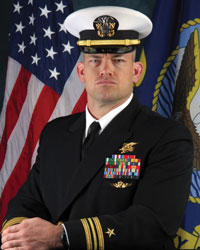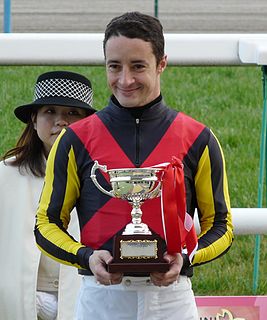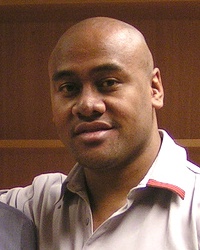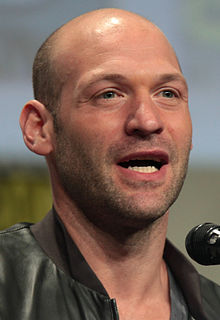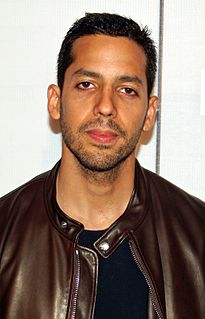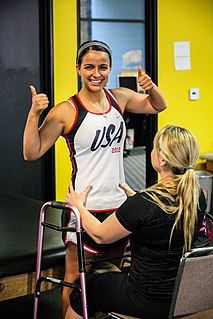A Quote by Jaimie Alexander
I went through some training with a Navy SEAL. I had to learn how to submerge myself underwater and hold my breath, how to move without creating waves, and how to be very stealth.
Related Quotes
What I'm trying to do is to tell young people that I teach them how to breathe before I teach the haiku. That one breath, that one breath, because the haiku keeps you alive. It keeps you going. If you learn how to breath the haiku, you learn how to breathe. If you learn how to breathe, you're much healthier.
You learn from music, from watching great athletes at work - how disciplined they are, how they move. You learn these things by watching a shortstop at work, how he concentrates on one thing at a time. You learn from classic music, from the blues and jazz, from bluegrass. From all this, you learn how to sustain a great line without bringing in unnecessary words.
Philosophy is the art of dying.Philosophy is an activity that has always been concerned with how one seizes hold of one's mortality, and I see myself continuing a very ancient tradition that goes back to Socrates and Epicurus, which is that to be a philosopher is to try and learn how to die. In learning how to die, one learns how to live.
At Lacoste, I learned how to drive in a very conservative environment. I had to learn how to do politics, how to talk, how to explain, and how to communicate a vision, and the necessary link between marketing and creative teams. Also, very important, the shop experience, which was actually very frustrating at Lacoste.
What makes you a SEAL, what makes you a SEAL is being a good tactician on the battle field, understanding how to shoot, move, and communicate, knowing small unit maneuver warfare. That's what makes a good SEAL, and so that is the course of instruction that I taught, was getting SEAL platoons ready for deployments to Iraq and Afghanistan.
There are a lot of inaccuracies out there when it comes to the SEAL training process. You will see guys carrying logs around on television. They think that the hardest part about being on a SEAL team is getting through that training. The fact of the matter is, if you have a good attitude, that training is fun. I had a blast.
By instructing students how to learn, unlearn and relearn, a powerful new dimension can be added to education. Psychologist Herbert Gerjuoy of the Human Resources Research Organization phrases it simply: 'The new education must teach the individual how to classify and reclassify information, how to evaluate its veracity, how to change categories when necessary, how to move from the concrete to the abstract and back, how to look at problems from a new direction — how to teach himself. Tomorrow's illiterate will not be the man who can't read; he will be the man who has not learned how to learn.'

